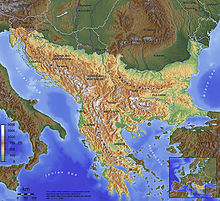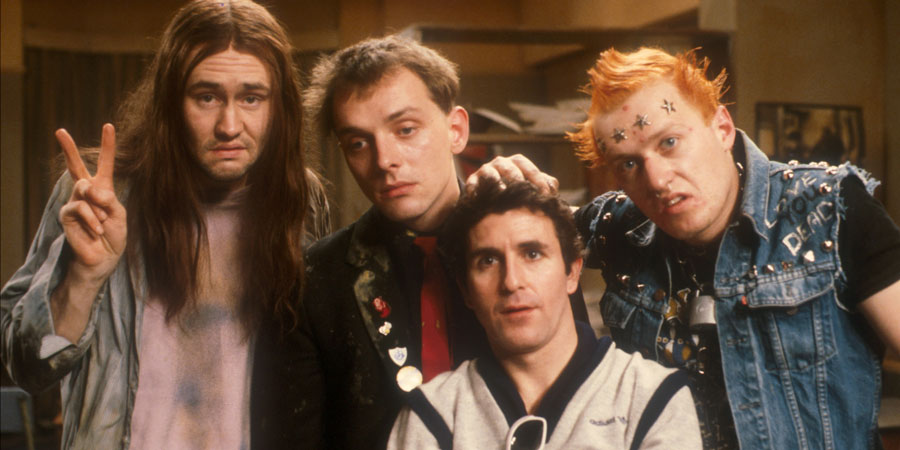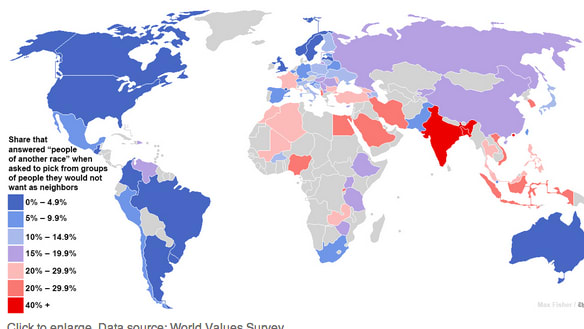Here City University student Jasmin Ojalainen writes about the UK’s urban slang…
As the melting pot heats up, multiculturalism isn’t only shaping the way we live but the way we speak. Jasmin Ojalainen investigates the /twæŋ/of London street /slæŋ/

”Yo, what’s good?” asks a young man in a greeting. While the more conventional ”I’m good thanks, how are you?” may be the natural response for most, it is not often heard amongst the London youth today. Particularly not with Andy Djaba, a 19 year-old chemical engineering student at Imperial College. ”I use quite a lot of slang, but not anything that someone that’s not from London wouldn’t be able to follow,” he says.
London slang and its varieties are constantly changing with diverse cultural nuances. Tony Thorne, language and innovation consultant at King’s College London, notes that the speech pattern amongst London youth has shaped over the years. “In the past London slang displayed certain distinct features – the obvious one of referring to places in the city and of course rhyming which is particularly associated with a London origin even if it is now used elsewhere,” he explains. “Today the slang associated with London youth is not actually confined to London and it is difficult to determine which specific parts of its vocabulary originated there.”
He refers to Multicultural London English, generally known as MLE, which features new words borrowed from outside the UK – exactly the variety of slang that Andy, of West African origin, is talking about. MLE is often linked to recently emerged multicultural hybrid “Jafaican,” or fake Jamaican, with West African and Asian undertones. Jafaican surfaced to the popular culture most notably through Ali G, a parody of a white man adopting slang as a stylistic preference in order to appear more “street.” Although Jafaican is a London creation, the modern youth slang is an urban vernacular saturated with a mixture of ethnic imprints. “The predominantly ’white working-class native Londoner’ slang of the past has been replaced to a large extent by a multiethnic set of codes retaining some local features, such as glottal-stopping or the criminal lexicon, but strongly influenced by external, especially Caribbean varieties,” explains Thorne.
Talking to Andy, these features are present. “Londoners drop the t’s,” he says, referring to glottal-stopping. “There’s little phrases that Londoners will say at the end, ‘d’you know what I mean?’, ‘you get me?’ and ‘innit?’” he says – again, characteristic of the Jafaican dialect. “It’s a nice way to round up a sentence.”
Thorne notes that whereas slang used to be condemned and resisted, it is now publicly recorded and celebrated as new words surface all the time. “There is an obvious need for linguistic renewal and innovation to keep pace with technological and social change and reflecting new influences such as immigration by outside linguistic groups,” he explains. “Within exclusive minority communities, such as street gang members, music genre aficionados and fashionistas, there is also a desire for novelty, originality and authenticity.”
The hip hop culture in particular has popularised modern slang, and Andy says that many words amongst the young today originate from the popular culture and contemporary phenomena, such as rap lyrics, videos and TV programmes – even people themselves. “I started saying ‘roll safe’ quite a lot because of the documentary. It just means you’re leaving somewhere,” Andy says referring to Hood Documentary, a series of documentary episodes released by a South London actor Kayode Ewumi last October. “Also ‘suck your mum’, but that’s like an insult – you hear rappers say it now, so you hear people say it a lot more now,” he adds. These lyrics have most recently been heard in a WickedSkengman, a release by London rapper Stormzy late last year. Andy explains that some of this slang develops in context through repetitive use, often in a group of friends. “Once people hear it, people start saying it, and eventually you understand what it means,” he says.
Because slang is a subversion that sits alongside what is considered correct use of language, a debate around its use in formal contexts persists. In 2013, the Harris Academy in South London’s Upper Norwood introduced a ban on slang to improve standards of English amongst students. Simon Heffer, author of Strictly English, is not against slang but he believes that it doesn’t belong to professional environments. ”Educated people avoid slang in formal settings, such as a job interview, so someone who does not know to do this will be assumed to be uneducated,” he says. Heffer suggests that the use of slang can point to underlying social inequalities in certain situations. “Slang is often used by those who don’t have a lot of power in society, so it serves those people best. This is most striking in London, with its persistent class system.”
“Where people use slang because they are incapable of reverting to correct speech when necessary, that does suggest at least educational marginalisation,”Heffer says. To Andy, this is something he pays attention to – very much for that same reason. ”I don’t include any slang, or as little slang as possible, when talking to older people or lecturers, tutors, stuff like that,” he says. ”I pronounce my t’s when talking to them.” He agrees that the use of slang could suffer a sociocultural stigma in a professional environment. “If you drop a lot of slang in a formal setting, they’re not gonna understand what you’re talking about. Secondly, if you do it, I think they’ll think you’re just a bit dumb. That you don’t have a wide range to your vocabulary,” he says. “You have to try and be a bit more sophisticated with the way you speak.”
Thorne agrees that slang bears an inherent stereotype. ”High status on the street implies low status in the capitalist economy,” he says. “There is nothing inherently, linguistically deficient about slang and slang users are not necessarily incompetent in standard literacies, but slang is associated with marginal or transgressive groups and activities and is viewed by many as embodying a threat to mainstream values.”
There is a concern that discarding slang at schools would further alienate young people, and some academics have sought alternative methods to bridge the linguistic gap. A former London schoolteacher Tim Woods started the London Dictionary Project as an attempt to catalogue and understand the slang his pupils were using, which was made public in 2014. “There is a common narrative that says that it’s the slang itself which is the problem, which is ridiculous,” Woods says and suggests that the choice should be up to young people themselves. “People respond to incentives, so if you put someone in a great school where many graduates end up running the country, they’ll be happy to adapt to the requirements of the system,” he says.
While Woods thinks that slang itself isn’t harmful, he believes in encouraging young people to use proper grammar and vocabulary to improve their language skills.
“It’s like taking a class in a foreign language and not being allowed to speak your native tongue. It’s not the native tongue itself which is harmful, but there can be a benefit to learning the way that other groups speak,” he says. “Language is very powerful and that makes people nervous. Often what people are saying is symptomatic of things rather than causal – but people would often rather the symptoms, such as inequality or hate, would just go away.”
Why the use of slang should face such controversy comes down to its stamp of exclusivity. Jonathon Green, a lexicographer of slang, notes that the use of slang has been linked to the marginal of society throughout history. “Slang was, is and will remain the language of the street,” he says. “A bottom-up creation that is associated with the working or lower class, even the modern underclass. There is little upper class slang, and such individuals are far more likely to ape the usage their social inferiors.”
Criminal jargon associated with slang may make this even more so, and Andy notes that the use of slang points to deeply rooted issues even today. “You don’t hear white people say London slang as much as black people,” he says. “There’s a thing that people think that if you speak with a lot of slang that you’re talking black. It’s ridiculous – I can understand why people say it, but it’s a generalisation. And it makes you think that in saying that, you’re implying that black people aren’t educated or white people are more educated.”
Green agrees that the ties with slang are socioculturally bound, and says that because of Jafaican infused MLE “we all speak black American to one degree or another.” He suggests, however, that the stereotypes that come with the use of slang are now met with an element of humour. “Slang is not as taboo nor as looked-down upon as once was the case. Look at dictionary definitions: for many years slang was defined as ‘low’ or ‘criminal’. These days the dictionary focus is on its wit and playfulness,” he says.
Despite the historically negative connotation of slang, in today’s society it inevitably merges multicultural identities past the stereotypic notion. ”Slang is used to construct alternative affiliations and identities, some of which may be multiethnic or even considered post-ethnic,” Thorne notes. “There may be grounds for disapproval but they are social or subjective, not linguistic or objective. Some terms in standard English, such as mob, gay, and bus, originated in slang.” Green also agrees that slang is a powerful social instrument that above all forges collective identities. “It all depends where you stand. If you see yourself as an upholder of establishment values, then slang is symptomatic of the ‘dangerous classes‘,” he says. “If you are young, criminal or in some other way socially marginal, then slang can both reinforce you as part of a group, and exclude those who are placed outside that group.”
Historically, London slang has seen the rise of many additional localisms and Thorne notes that even now, there are local dialects – although they largely overlap – within London youth slang ”so that slightly different terms are fashionable in different zones.”Andy, who was born and raised in North West London, notes that the geographical and social differences play a key role in what slang is used. ”Where you’re from and what school you went to definitely affects the way you speak,” he says. “I’ve got mates that are from south London and some of the stuff they say I don’t understand.”
The expanding tentacles of London slang and its diverse branches seem to have eclipsed the traditional Cockney over time. Green, however, thinks that the traditional East End dialect is not entirely gone. “Cockney is not brown bread*, but it is a very different creature from that which was first recorded in 1856,” he says and suggests that the old slang has become something of an iconic trademark.
“The last twenty years and more have seen a major change. It has become little more than another illustration on the tourist map of London. Like black cabs and red telephone kiosks – neither of which really exist – it is inextricable from traditional London. In fact it is yet another badge awarded the Z-list celebrity, along with tabloid scandals and appearances on reality TV shows,” Green says.
Even so, the rhyming slang has escaped the tongues of the younger generation. “I don’t understand Cockney slang,” Andy says straight away. “I think it is dying out – to be fair, I don’t live in the Cockney area, but I haven’t heard people my age talk any Cockney slang.” And he is not alone. A study published by the Museum of London in 2012 already showed that the East London dialect may be fading out as majority of the 2,000 participants failed to recognise traditional phrases associated with the rhyming slang.
In an article written for the Independent, however, Thorne points out that Cockney isn’t a shared dialect but a word game not meant to be understood immediately by everyone. So, no one actually talks in Cockney anymore, but Thorne notes that even when the rhyming part is left out, the heritage of the slang is still present in our everyday discourse. Many phrases have been simply trimmed from their originals, such as “taking the mick” that used to be known as “Mickey Bliss.”
Dynamics of slang from rapid change in meaning to widely recognised words that stick around for decades may be as complex as the sociolect itself, and what makes some slang effective is difficult to pinpoint. “It’s not possible to predict or to be sure in retrospect which slang terms persist or cross over into everyday usage and which don’t. This may occur if a term fills a lexical gap in the language – if it encodes something which previously lacked a name,” Thorne explains. ”Slang by definition carries a charge of novelty, exoticism, transgression and topicality which may account for its power,” he says and adds: ”It’s also untrue that all slang is short-lived: even the vogue terms of youth slang, such as ’solid’, ‘cool’, or ‘wicked’, tend to stay in use for several to many years, though they may migrate from the high status expert users to less fashionable speakers.”
Green notes that the initial secrecy of slang may have accounted for its fast-paced change. ”When a term became known outside the group, it was necessary to replace it. And while linguistic secrecy, if it even exists, is much shorter-lived today, that principle still obtains,” he says. And perhaps the magic of slang and why it works is its constant revision that accounts for some personal influence. The idea of a shared identity boosts the personal significance slang has on its user, and Woods suggests that it is indeed that kind of social power that makes slang so popular and effective.
“A few times when I was a student myself I gave someone a nickname and it stuck. Everyone would start calling this person by the new name, but only the people in our group knew where it had come from and what it was implying,” he says. “There was always a bit of a hidden meaning behind it. The person with the nickname felt like they were really part of the group too, but of course a nickname often only lasts a month or something.”
“I think slang is similar. If you can use the right words, if you know the words, you know you’re in the group and other people are reminded that you’re in the group,” Woods thinks. Andy says that to him, slang has exactly that function, sometimes to the point where it replaces actual names. “I don’t even call my brother by his name anymore, I just call him ‘bruv‘,” he says.
Thorne reminds that other historical slangs in London, such as Polari, which West End version was used in theatre whereas the East End equivalent was heard in the Docklands, both mainly by gays, worked as a stamp of identification. As a social means, slang fosters an exclusive sense of belonging and equality between the speaker and the listener. ”All peer-groups or communities of practice operating in clearly defined and restricted settings and valuing exclusivity are likely to generate their own sociolects – nonstandard varieties of language related to location, class, ethnicity and/or activity,” he says.
Andy says that he uses slang especially with his friends, and confirms that “there’s an identity to it.” Additionally, he thinks that London slang itself has a widespread sense of tribalism amongst its speakers in the city. “It’s quite clear that Londoners speak in a different way to everyone else,” he says and shows that people take pride in the use of slang with a playful us-them mentality. “If I heard a non-Londoner saying a lot of London slang, I’d be like, what are you doing, just trying to copy how we speak.”
In the UK, London is naturally the cradle of all slang and according to Green, the capital’s strong slang base is “vastly outweighing any rival.” But even so, the countless possibilities unleashed by the digital world and multiculturalism, the original London slang – the language of the working class, underworld, traders, and gays – has since lost its primacy. Whereas cultures and multidimensional identities are constantly forged together, so is new slang.
Contemporary millennials and today’s youth ensure that slang keeps flourishing, which means it changes often – and perhaps the secrecy of modern slang is in the fact that it can be hard to keep up with. ’Styll’, perhaps the most peculiar of recent slang words, is something Andy finishes the occasional sentence with. It doesn’t really have a meaning, or it is one of a varying degree, and yet it somehow seems to encapsulate the youth slang with its growing popularity and slight absurdity.
“It doesn’t mean anything, you just say it. Like when you’re watching a football match, you go: ‘Oh yeah, that was a good match styll,” Andy says. “I picked it up on Twitter.” And that’s how slang seems to work. It forms in the mouths of the young, the contemporary and the influential, it spreads through peer groups and celebrities, and most importantly, it develops through life and conversation – and nowadays, even social media.
And while the era of global digitalisation has already had its footprint on youth slang, Andy says it’s difficult to remain self-aware with the overwhelming exposure of new slang and emerging influences. “It’s not that deep,” Andy sums it up with a phrase that has surfaced in his speech in regular intervals. ‘It’s not that deep’ or ‘the situation at hand does not require such desperate actions,’ as defined by Urban Dictionary – or perhaps in this context, a suggestion that Andy doesn’t want to overthink the possibly layered reasons behind the way he speaks. “You just pick these things up and it gets assimilated into how you talk,” he explains, and it seems perfectly plausible.
Slang and varying patterns in speech are contagious, at least to some. As a natural response to ever-evolving language, our primary means of communication and understanding our surroundings, we tend to pick up and imitate changes in style all the time. After all, it’s bare colloquialism. Innit?
allow (verb) – to forget about sth; to dismiss the topic of discussion
bait (adj) – obvious
bare (adv) – a lot of, very
big man ting (adv) – to be honest
bitz (n) – neighbourhood
bruv (n) – brother
com (adj) – cool
dinter (n) – male
deece (adj) – nice, decent
gassed (adj) – excited, full of oneself
gwop (n) – money
innit (excl) – isn’t it
long (adj) – boring
mandem (n) – a group of male friends
moist (adj) – soft
man’s (n) – I, I am
neek (ad) – nerd
peak (n) – bad luck
roadboy, roadman (n) – local; someone who knows the area well
roll safe (excl) – goodbye
skeen (adj) – understood
styll (adv) – though
wagwan (excl) – what’s up
wasteman (adj) – loser; someone who does nothing with their life
Adam and Eve (verb) – to believe
Barney Rubble (n) – trouble
Brahms and Liszt (adj) – pissed (drunk)
bees and honey (n) – money
brown bread (adj) – dead
butcher’s hook (n) – a look
China plate (n) – mate (friend)
dog and bone (n) – phone
half-inch (verb) – to pinch (steal)
Hank Marvin (adj) – starving
laugh ‘n a joke (n) – smoke
Mickey Bliss (verb) – to take the piss
pig’s ear (n) – beer
rabbit and pork (verb) – to talk
Todd Sloane (adj) – alone














